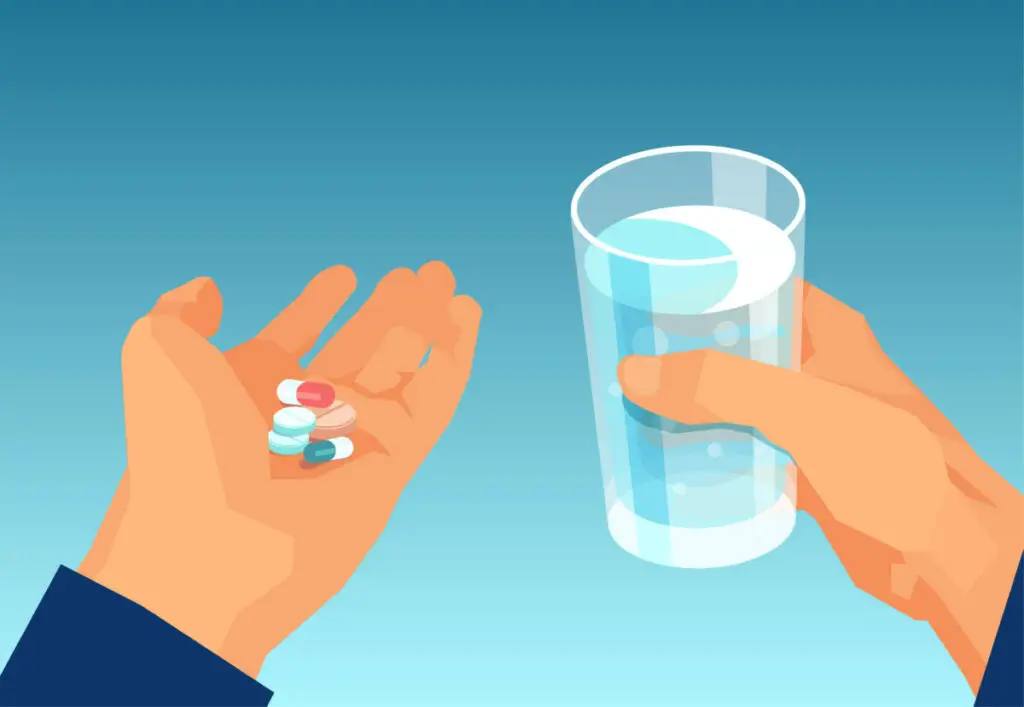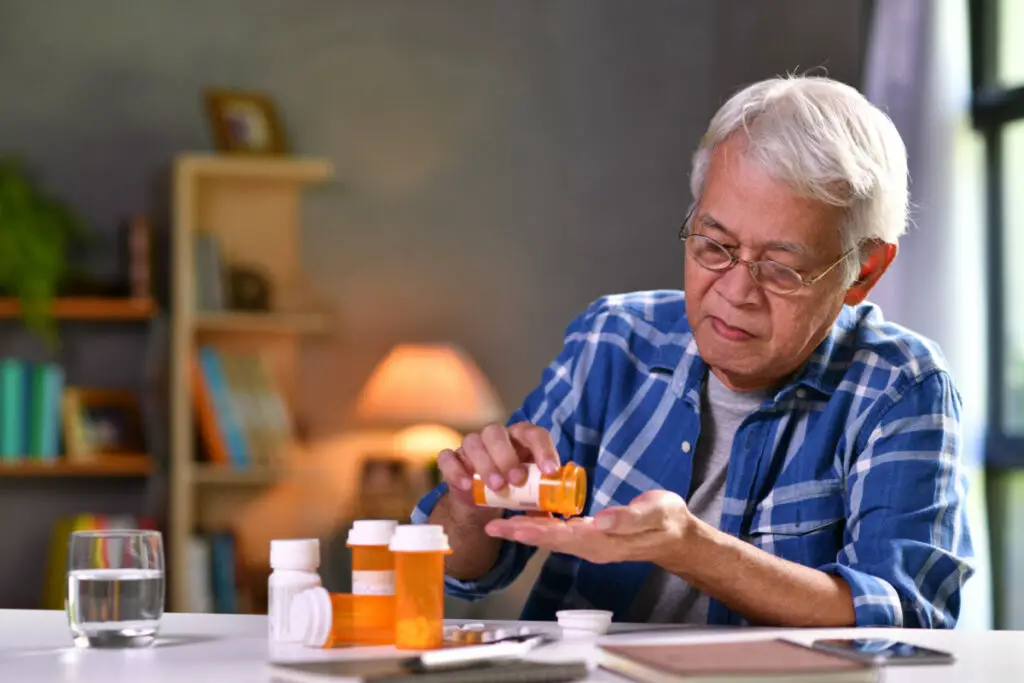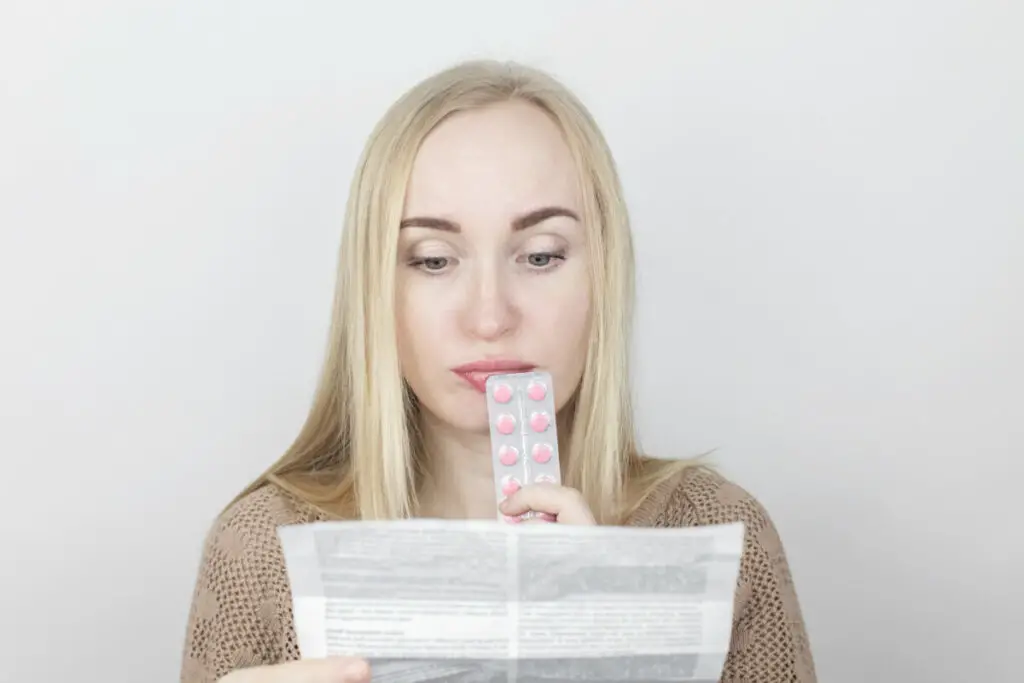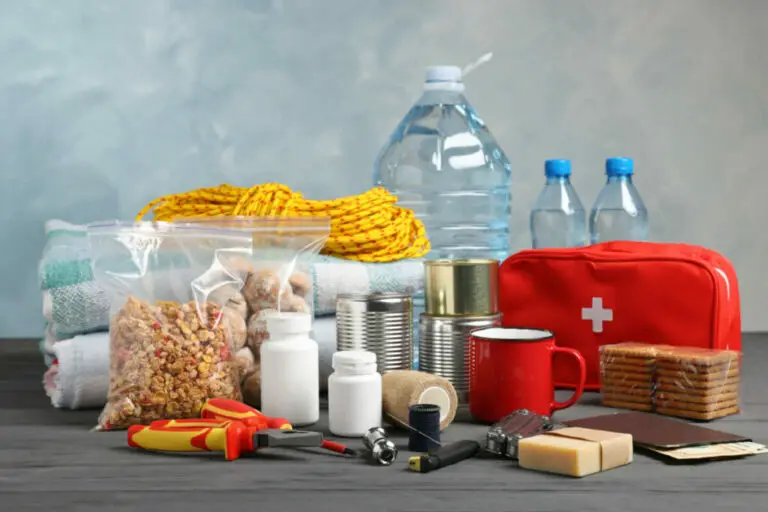
Emergencies can happen anytime, anywhere, and having the right medications on hand can make a big difference in the outcome. Being prepared with the right medications can provide peace of mind and help you stay calm and focused in case of an emergency.
6 of the medications that you should have on hand in case of an emergency are listed below.
1. Epi-Pen for People With Allergies
EpiPen is a brand name for an epinephrine auto-injector, which is a medical device used to treat severe allergic reactions, also known as anaphylaxis.
Anaphylaxis is a severe and potentially life-threatening allergic reaction that can occur within seconds or minutes of exposure to an allergen, such as certain foods, insect bites, or medications. Symptoms of anaphylaxis can include difficulty breathing, swelling of the throat or tongue, rapid heartbeat, and loss of consciousness.
The EpiPen contains a pre-measured dose of epinephrine, which is a medication that helps to relax the muscles in the airways and improve breathing. The injection is given into the muscle of the outer thigh and can provide rapid relief from anaphylactic symptoms. The EpiPen is designed for self-administration and is also commonly carried by people with known severe allergies.
In emergency situations, an EpiPen can be a life-saving medication for those experiencing anaphylaxis. It is important to note that an EpiPen should only be used in cases of severe allergic reactions and that medical attention should be sought immediately after it is administered. It is also important to be aware of potential side effects, which can include increased heart rate, nausea, and anxiety.
It is important to have an EpiPen on hand if you or a loved one has a known severe allergy. In addition, it is important to know how to properly use the device, as well as how to recognize the signs and symptoms of anaphylaxis. It is recommended that those with severe allergies carry two EpiPens at all times, as sometimes one dose may not be enough to control the symptoms.
It is also important to check the expiration date of the EpiPen and to replace it before it expires. Over time, the epinephrine in the device can degrade and become less effective.
In addition to carrying an EpiPen, it is important to take steps to avoid exposure to known allergens. This may include avoiding certain foods or insect bites, wearing protective clothing, and carrying antihistamines.
If you or someone you know has been prescribed an EpiPen, it is important to know how to use it properly and to carry it at all times, as you never know when an emergency will occur.
An Epi Pen would be a great thing to have in a first aid kit even if you don’t have known severe allergies in case you have an allergic reaction to something you didn’t know you were allergic to. Unfortunately, you can only get an EpiPen with a prescription in the US, so unless you have a known severe allergy, you probably can’t get one.
2. Electrolyte Solution for Dehydration
Electrolyte solution, also known as oral rehydration solution, is a common medication used in emergencies to replace fluids and electrolytes lost due to dehydration.
Electrolytes are minerals such as sodium, potassium, and chloride that are essential for the proper functioning of the body’s cells, organs, and tissues. In emergency situations such as diarrhea, vomiting, or excessive sweating, the body loses these electrolytes, leading to dehydration and potentially life-threatening complications.
Electrolyte solutions contain a balanced combination of electrolytes and fluids that help to restore the body’s fluid and electrolyte balance. They are available over-the-counter at pharmacies and come in different forms such as powder or pre-mixed solutions.
In emergency situations, electrolyte solutions can be used to treat dehydration caused by a variety of conditions such as gastroenteritis, heat exhaustion, and excessive sweating. They are also recommended for people who are at risk of dehydration, such as athletes and those who work in hot or humid environments.
However, it is important to follow the recommended dosage and to be aware of potential side effects. Overconsumption of electrolyte solutions can lead to an imbalance of electrolytes in the body, which can cause serious health issues such as seizures and heart problems. In addition, electrolyte solutions should not be used as a substitute for medical treatment in cases of severe dehydration.
To prevent dehydration in the case of diarrhea, vomiting, or excessive sweating, you can proactively drink a hydration drink like Liquid IV (affiliate link) which you can get at Costco, most grocery stores, or from Amazon.
3. Pain Relievers for Reducing Swelling and Pain

Pain relievers are a common medication used to alleviate pain, discomfort, and fever in emergency situations.
Non-steroidal anti-inflammatory drugs (NSAIDs) and acetaminophen are the two main types of pain relievers. NSAIDs such as ibuprofen, naproxen, and aspirin work by blocking the production of prostaglandins, which cause inflammation and pain. Acetaminophen, also known as paracetamol, works by reducing the production of certain chemicals in the brain that cause pain and fever.
In emergency situations, pain relievers can be used to alleviate pain caused by injuries, dental problems, headaches, and other conditions. They can also help reduce fever and inflammation, which can be symptoms of underlying medical issues.
It is important to follow the recommended dosage and to be aware of potential side effects. Overuse of pain relievers can lead to stomach ulcers, kidney damage, and other health issues. In addition, certain types of pain relievers can interact with other medications and should not be used in conjunction with certain medical conditions such as asthma or bleeding disorders.
It is also important to note that pain relievers are a temporary solution and should not be used as a substitute for proper medical treatment. In cases of severe pain or underlying medical conditions, it is important to seek medical attention and receive appropriate treatment.
When using pain relievers in emergency situations, it is important to choose the appropriate type and dosage based on the specific symptoms and underlying medical conditions. For example, NSAIDs may not be recommended for people with a history of stomach ulcers or bleeding disorders, while acetaminophen isn’t effective at reducing inflammation.
It is also important to be aware of potential drug interactions and to consult with a medical professional before using pain relievers in conjunction with other medications. Certain medications, such as blood thinners and antidepressants, can interact with pain relievers and increase the risk of side effects.
In addition to following recommended dosage and precautions, it’s important to store pain relievers properly and keep them out of reach of children. Improper use or storage of pain relievers can lead to accidental overdose or ingestion by children, which can be potentially fatal.
Pain relievers can be a useful tool in managing pain, swelling, and fever in emergency situations. However, it’s important to use them responsibly and to seek proper medical treatment for injuries and chronic medical conditions. With the right precautions and guidance from a medical professional, pain relievers can be an effective way to alleviate discomfort and aid in the healing process.
4. Activated Charcoal for Harmful Toxins
Activated charcoal is a substance that, when used as medication, can be a lifesaver in emergency situations involving poisoning and overdose. It works by adsorbing toxins and harmful substances in the gastrointestinal tract and preventing them from entering the bloodstream. This makes it an effective first-line treatment for certain types of poisoning and overdose, including those caused by drugs, chemicals, and certain types of food.
One of the main benefits of activated charcoal is that it is relatively safe and easy to administer. It can be given orally as a capsule, powder, or mixed with water, or through a nasogastric tube inserted into the stomach. Its low cost and wide availability make it a valuable tool for emergency medical personnel and first responders.
However, there are certain precautions that should be taken when using activated charcoal. It is not effective in treating all types of poisoning and overdose, and may even be harmful in some cases. It can also interfere with the absorption of certain medications, making it important to wait at least two hours before administering other drugs.
Despite these limitations, activated charcoal remains a valuable tool in the treatment of poisoning and overdose in emergency situations. It is important to seek medical attention immediately in case of suspected poisoning or overdose and to follow the guidance of a medical professional in administering activated charcoal. With proper use and precautions, activated charcoal can help save lives and prevent serious harm.
5. Antihistamines for Allergic Reactions
Antihistamines are a class of medications that are commonly used to treat allergies, but they can also be helpful tools in emergency situations.
Antihistamines work by blocking the effects of histamine, a chemical released by the body in response to an allergic reaction. This can help relieve symptoms such as itching, swelling, and hives. In emergency situations, antihistamines can be used to treat severe allergic reactions, also known as anaphylaxis. Anaphylaxis is a serious and potentially life-threatening condition that can cause difficulty breathing, rapid heartbeat, and low blood pressure.
The first-line treatment for anaphylaxis is epinephrine, also known as adrenaline, which helps to open airways and increase blood pressure. However, antihistamines can be used in combination with epinephrine to further reduce symptoms and prevent a recurrence of the reaction. Antihistamines can also be used to treat less severe allergic reactions, such as those caused by insect bites or minor food allergies, and can be used in severe situations when an Epi-Pen isn’t available.
It is important to note that antihistamines should not be used as a substitute for emergency medical treatment. In case of anaphylaxis, epinephrine should be administered immediately if possible, and medical attention should be sought as soon as possible. Antihistamines can also cause side effects such as drowsiness, dizziness, and dry mouth, so it is important to follow the recommended dosage and avoid operating heavy machinery or driving after administering antihistamines.
6. Asprin

Aspirin is a common medication used for pain relief and reducing inflammation, but it can also be a life-saving medication in an emergency. Aspirin is commonly used to help prevent heart attacks and strokes, as it can help thin the blood and prevent blood clots from forming.
Aspirin is particularly effective in preventing heart attacks and strokes because it helps prevent the formation of blood clots, which can block blood flow to the heart or brain. When taken at the first signs of a heart attack or stroke, aspirin can help improve blood flow and reduce damage to the heart or brain. The American Heart Association recommends that individuals at high risk for heart attacks or strokes take a daily low-dose aspirin as a preventive measure.
In an emergency situation, taking aspirin as soon as possible after symptoms of a heart attack or stroke begin can help improve the chances of survival and reduce the risk of long-term damage. The recommended dose for emergency use is 325 milligrams of aspirin, which should be chewed and swallowed immediately. It is important to note that aspirin is not a substitute for emergency medical treatment, and individuals experiencing symptoms of a heart attack or stroke should call 911 and seek medical attention immediately.
While aspirin can be a life-saving medication in emergencies, there are some precautions that should be taken. Aspirin can negatively interact with other medications or medical conditions, such as bleeding disorders or stomach ulcers, so it is important to speak with a doctor before taking aspirin. Additionally, taking too much aspirin can cause serious side effects such as stomach bleeding or even a stroke, so it is important to follow the recommended dosage and not exceed it.
Before taking aspirin during an emergency, make sure that it isn’t expired and that the package that each pill is in is sealed properly. You can purchase aspirin at any drug store or grocery store where medication is sold.
If you can’t afford to purchase name-brand aspirin, there are many generic brand versions of aspirin that will work just as well.
There are many medications that you should have on hand just in case an emergency occurs. After putting all of these medications in an emergency kit, regularly check expiration dates so you don’t accidentally take expired medication. A good place to put all of these medications is in a first aid kit that you take with you when you travel, as doing so will allow you to easily access each medication in the event of an emergency.
While all of these medications are important to have on hand in the case of an emergency, if you have health conditions that will cause the medications to not work properly, don’t have them on hand as you won’t be able to take them. Consult your doctor to determine which medications you should have on hand instead.


